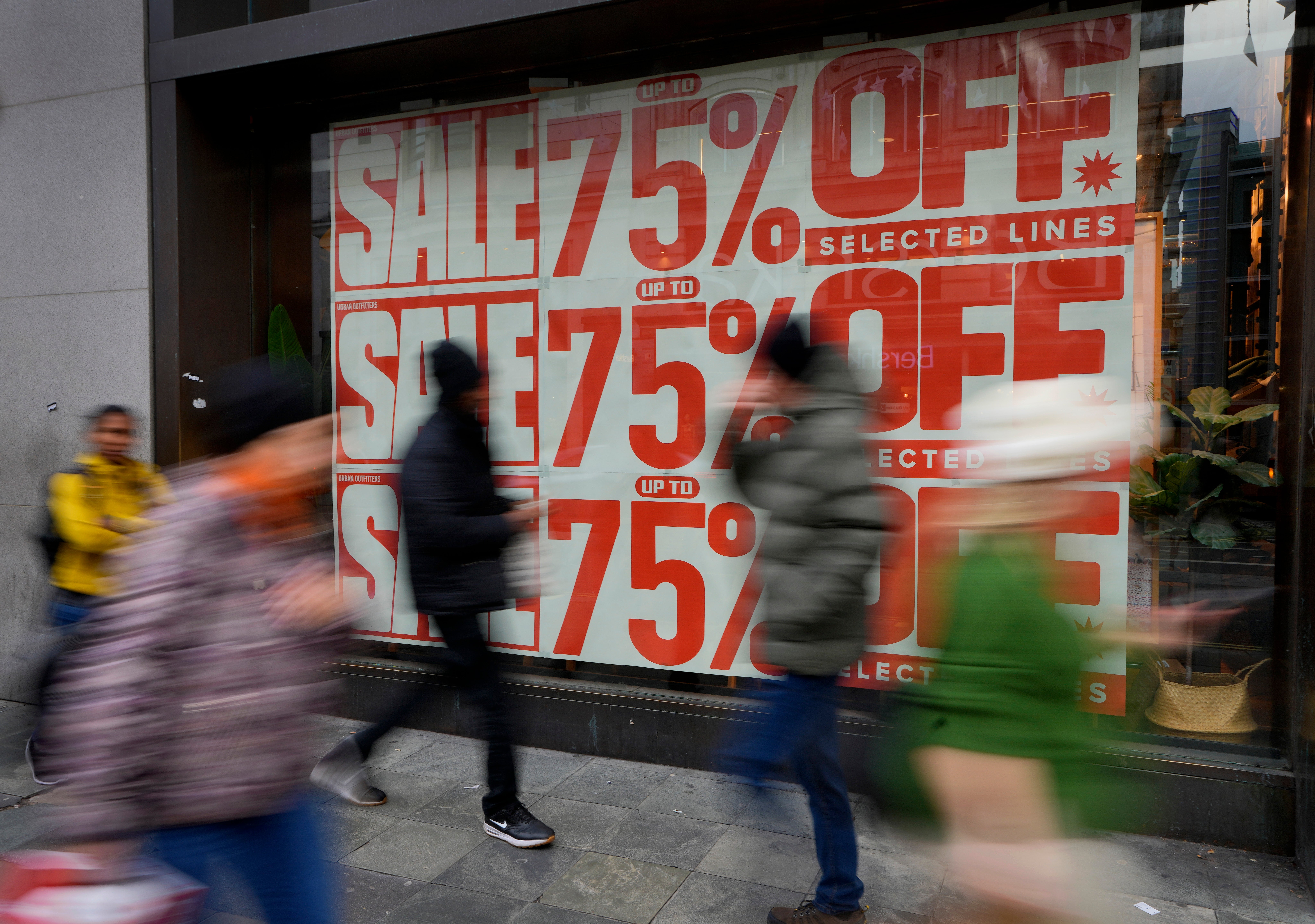Why the hard work on inflation is still to come
We’re still permanently poorer after the cost of living squeeze, 2024 will be a tough year for the economy says Sean O’Grady


A bigger-than-expected fall in the rate of inflation is an unexpected Christmas gift for Rishi Sunak and his government, as well as for consumers and businesses. Consumer Prices Index inflation fell to 3.9 per cent in November, down from 4.6 per cent in October, and the lowest level since September 2021.
The cost of bread, petrol and of second-hand cars helped drive the rate lower, as well as a recent slowing in wage growth that pushed “core” inflation down to 5.2 per cent. Over this year, much of the fall has been due to statistical base effects – the absence of the sharp rises in food and energy prices we suffered in 2022. Moreover, inflation remains some way above the Bank of England’s official target rate of 2 per cent; and annual food inflation is still almost 10 per cent; on the other hand, energy bills are reportedly predicted to ease a little next summer.
Does this mean prices are coming down?
No. Indeed, the recent burst of inflation was the worst in decades and will mean a permanent cut in the purchasing power of the pound in our pockets, as food and energy prices remain more or less at their present elevated level, rather than falling back to pre-Ukraine invasion levels. Much the same goes for post-pandemic interest rates; things will feel better, but you’re worse than before – an effect comparable to when you stop banging your head against a wall.
Does it mean Rishi Sunak will meet his inflation target?
Certainly, and he has exceeded it, as the year-end target was around the 5.5 per cent mark. Arguably it was the easiest of his five “people’s priorities” to secure, but it could have gone wrong. Indeed, it may still do so in the coming months if international instability creates another spike in oil and food prices. Wars are usually bad for the world economy.
Should the government get the credit?
Of course not; there’s an old quip that governments blame global factors beyond their control when inflation goes up but grab the credit when similar factors push the rate back down again. There is certainly something of that going on now. Absent another energy crisis, inflation was always going to subside globally during 2023, and so it has proved.
Tactically, the task of tightening interest rates to limit domestic inflation and prevent a wage-price spiral has been carried out by the independent Monetary Policy Committee of the Bank of England (although some blame the Bank for expanding the money supply too much during Covid).
The one thing Sunak and chancellor Jeremy Hunt can say they got right is in supporting the Bank of England, both rhetorically and in running fiscal policy in harmony with monetary policy. Had they repeated the errors of the brief Truss-Kwarteng era, things would be a lot messier now. They did their bit, resisted political pressures and public pay demands, and avoided major blunders.
What does it mean for interest rates?
Good times are not about to roll, and a return to ultra-low rates is essentially impossible. However, the Bank will be able to keep interest rates stable and avoid having to put them up further for longer than would otherwise be the case, and lower rates may come sooner than thought. Caution is key: getting inflation down from about 11 per cent to about 4 per cent was the relatively easy part, and pushing it further to 2 per cent will be a tougher task. The slowdown in the economy will mean more pain for households as rates remain high by recent standards.
Won’t things get better?
Yes, in two ways that are politically significant. A lower-than-expected cost of servicing the national debt means the chancellor will have a little extra headroom for cutting taxes, boosting public spending, or some combination of the two.
Mortgage holders will also benefit, by comparison with what seemed more likely before. Those coming off very cheap fixed-rate deals in 2024 will have a slightly smaller shock, and first-time buyers and those moving will also gain some marginal national advantage.
Will it affect the next election?
It should help the government a bit, because it’s a rare piece of good news that could be spun into a “past the worst” or “turning point” narrative. That said, the economy will be fairly stagnant under pressure next year and the experiences of the last few years, including Brexit, suggest any amelioration will be despite, rather than because of, ministers’ actions. The Conservatives’ reputation for sound economic management was destroyed irrevocably by the Truss experiment.






Join our commenting forum
Join thought-provoking conversations, follow other Independent readers and see their replies
Comments